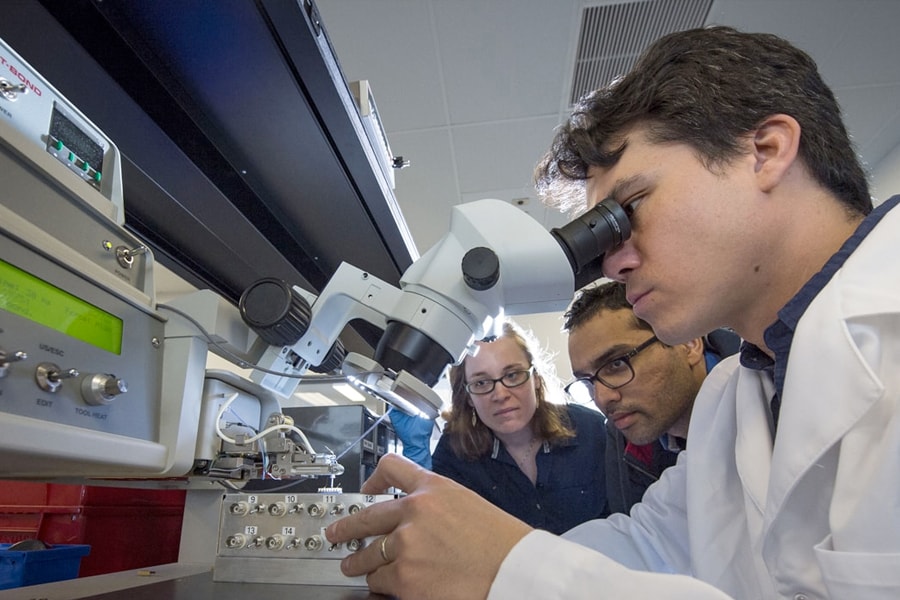
CMU Physicist Earns Department of Energy Early Career Research Award
Ben Hunt, an assistant professor of physics at Carnegie Mellon University, was awarded a five-year Department of Energy (DOE) Early Career Research Award in the area of basic energy sciences.
Hunt studies the behavior of electrons in extremely cold temperatures and powerful magnetic fields where familiar physics fades away and particles are governed by a different set of laws. There, he said he hopes to discover new materials that could be building blocks for the quantum computers of the future.
"We're going to take matter to the extreme," Hunt said.
One material Hunt studies is graphene, a material made from a flat honeycomb pattern of carbon atoms, and which has a number of remarkable properties. In 2013, Hunt helped lead a team that discovered one of these properties: when stacked up with an insulator, graphene gains the ability to "turn off" its conductivity, which is crucial for conveying the binary information at the heart of all classical computers.
Now, Hunt wants to find a material that could form the substrate for the next generation of computers. Hunt's DOE project aims to layer graphene with other flat materials at a small fraction of a degree above absolute zero to form what's called a "topological insulator." In this new form of matter, electrons can move along the edge of the material with no loss of energy. That property makes these materials a strong candidate for underlying the ultra-powerful quantum computers of the future, in the same way that silicon underlies the computers of today.
DOE Early Career Research awards provide five years of financial support to exceptional researchers in the early years of their career. Hunt is one of 59 recipients from a pool of roughly 700 proposals. He plans to use the grant to fund graduate students and postdoctoral researchers in his lab.
"I have all of the equipment and collaborations that I need," Hunt said. "What I need are enthusiastic and bright scientists to execute these ideas that are on paper right now."
